Tassie’s worst cases of animal cruelty as RSPCA Tasmania data reveals suburbs with most complaints
From a dairy farmer who neglected his cows to a man who starved his dog and students who tortured a wallaby, we reveal Tasmania’s worst animal abusers + the worst suburbs. **WARNING: GRAPHIC CONTENT**
Tasmania
Don't miss out on the headlines from Tasmania. Followed categories will be added to My News.
- Dark kitchens: How Tassie’s e-food is really served up
- Revealed: Tassie suburbs about to join the $1m club
DATA has revealed the hot spots for animal cruelty in Tasmania, with a major centre on Tasmania’s North-West Coast having the most reports.
There were 72 reports of animal cruelty made to RSPCA Tasmania in Devonport during 2019-20, five more than Glenorchy which was the second-highest.
Other suburbs in the top five included Ravenswood (66), Claremont (54) and New Norfolk (42).
Ulverstone, Bridgewater, Invermay, East Devonport and Deloraine rounded out the top 10.
>> SCROLL DOWN TO SEARCH YOUR SUBURB
Thousands of reports of animal cruelty are received by RSPCA Tasmania each year, but only a handful usually reach the state’s courts.
From the most serious cases of neglect or abuse, to pets being left unattended for short periods in hot cars, the organisation receives an average of about six calls each day.
In the 2019-20 financial year, there were 2171 calls to the RSPCA’s hotline, with dogs, puppies and horses the basis of most of them.
RSPCA Tasmania chief executive Jan Davis said not all of them were found to have substance, but many instances of neglect affected her emotionally.
“A lot of them upset me,’’ she said.
“There is nobody who can honestly say they don’t know it is wrong to treat an animal cruelly.
“There’s no excuse.”
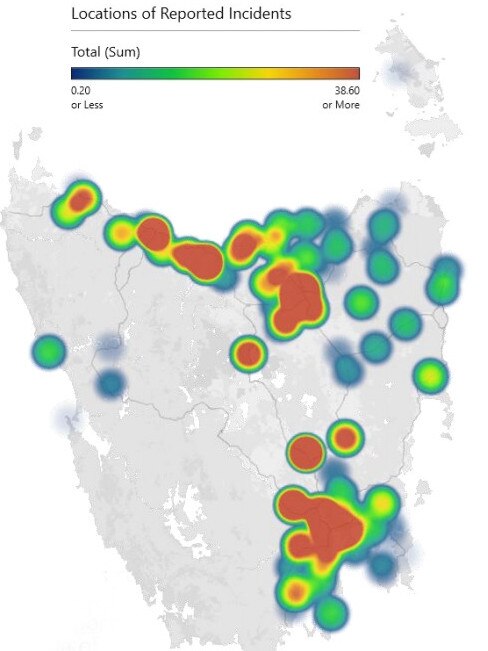
Sixteen people were charged with animal cruelty offences in 2019-20, with 169 instruction notices, three infringement notices and 1299 warnings issued.
Most reports progressed in some way, with the RSPCA taking an educative approach to animal owners in the first instance.
But Ms Davis said the ones that do proceed to court were the most serious.
“The ones that do progress to court, and fortunately we don’t have that many of them, are always upsetting to see a critter that can’t not only speak for itself but it can’t look after itself being harmed by someone who should know better,’’ she said.
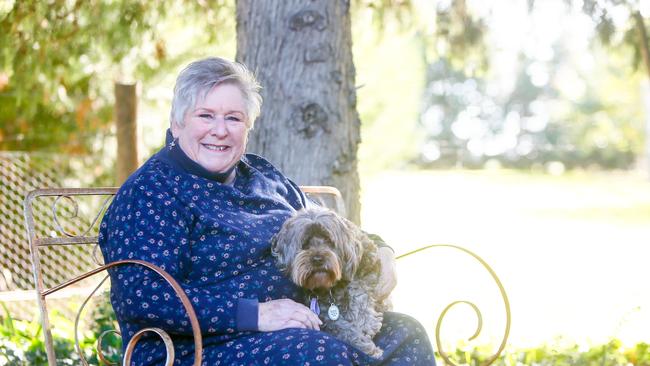
Ms Davis said she believed the penalties for animal cruelty offences were not strong enough and needed to be looked at.
“When it gets to the point of penalties, there is no excuse and we should be using the strongest possible tools we have in our armoury,’’ she said.
“At the moment the fines are just not enough and it doesn’t have to be monetary fines, it could be bans on people owning animals.
“We’ve got to make it so that people understand that if they do the wrong thing, there are serious consequences.”
To make a report, phone the RSPCA on 1300 139 947.
Today, the Mercury looks at some of the worst cases of animal cruelty in Tasmania in recent years.
Former dairy farmer jailed over cruelty offences
Former Redpa dairy farmer Roderic Neil Mitchell was jailed after being found guilty of animal cruelty.
Animal welfare officers arrived at the Redpa farm to seize cows in July 2007, with the charges involving 188 dairy cows that were subjected to serious forms of neglect.
Mitchell was found guilty in July 2013 of five animal cruelty charges.
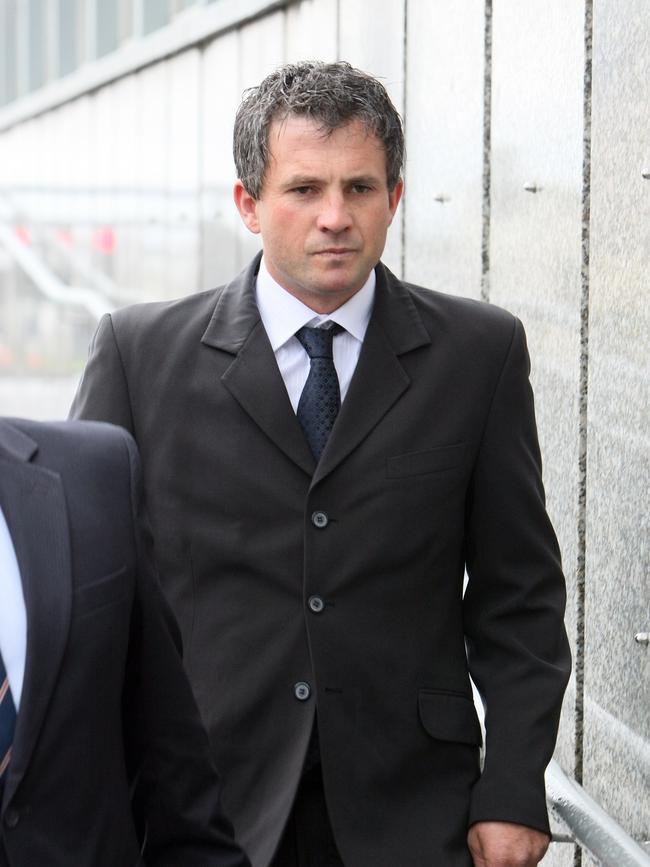
Prosecutors had argued Mitchell tried to blame others and had shown no contrition, but Mitchell’s lawyer submitted that Mitchell, then aged 33, had been out of his depth.
Magistrate Reg Marron handed down a 15-month jail sentence to Mitchell, but it was immediately appealed.
Supreme Court Chief Justice Alan Blow re-sentenced Mitchell to 12 months in jail.
“One of the worst cruelty cases he had ever seen”
In 2015, Bridgewater woman Hayley June Campbell, 24, pleaded guilty to one count of cruelty to an animal, after starving a bull terrier cross named Ripper nearly to death.
One veteran RSPCA officer described it as the worst case of emaciation he had ever seen.
RSPCA prosecutor Glenn Carey said the case was “right up there” with the worst cruelty cases he had seen in Tasmania.
“Two different vets told me that Ripper would have died if we had got to him even a day later,” Mr Carey said.
“By the time that we got to him, he could only move his eyelashes.”
Unfortunately, Ripper later died.
Campbell was sentenced to six weeks’ jail, wholly suspended on the condition she be of good behaviour for three years, and she was also banned from owning a dog for three years and ordered to pay costs of almost $1000.
“These animals can’t care for themselves”
A Hobart woman avoided a jail sentence over a case in which one of her miniature ponies had to be put down after its hoofs became severely overgrown.
Alexandra Mitchell, 47, of Rosetta, pleaded guilty in 2017 in the Hobart Magistrates’ Court to animal cruelty offences.
The court heard two miniature ponies had overgrown hoofs, which had become twisted, making it hard for them to stand and one was particularly reluctant to move.
After a month of treatment, one pony had to be put down but the other went on to make a full recovery.
The court heard Mitchell accepted she was responsible for the ponies’ care and was “absolutely remorseful”.
Deputy Chief Magistrate Michael Daly said animal cruelty cases often brought about an emotive response from the public.
“These animals can’t care for themselves,’’ he said.
Mitchell was convicted on both charges and fined $2000, ordered to pay $2740 in costs to the RSPCA and was ordered to provide updates to the RSPCA about horses still in her care.
“Appalling” cruelty to dog named Smoochie
Mayfield woman Skye Christina Harris was banned from owning a dog for seven years and ordered to pay a $1500 fine over a dog in her care called Smoochie.
In February last year, Launceston Magistrates’ Court heard RSPCA officers found the dog malnourished and living in appalling conditions with “large amounts of faeces and urine”.
It was confined, restrained and unable to provide for itself and Harris had failed to provide for the animal.
Magistrate Simon Brown said the dog must have “literally been crying out for nutrition and medical attention, which it did not get”.
He said the dog suffered “significant pain and distress”, which showed a disregard of the animal’s condition over a period of weeks and a “callousness almost beyond belief”.
Before and after photos showed the dog had recovered from its suffering, with the court hearing the progress was a happy ending.
Dog brought back to health after cruelty
A staffy cross named Dallas was starving to death and riddled with fleas when he was found by an RSPCA officer who removed him from a Burnie house in 2019.
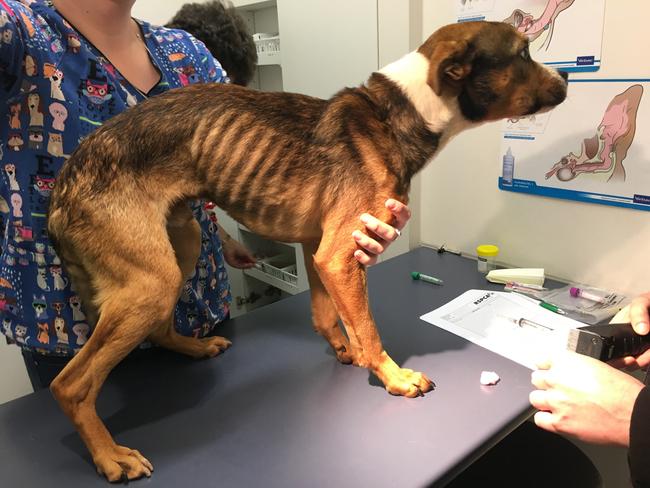
Sadly, it was too late to save his “brother” Scooby who was found dead in an open porch.
The woman who was meant to be looking after the dogs, Jackie Jacobson, was banned from having custody of a canine for 10 years after pleading guilty in Burnie Magistrates’ Court to aggravated animal cruelty.
Dallas was brought back to health and weighed 14kg more than when he was removed from his former owner and is now happy and healthy.
Magistrate Leanne Topfer told the former owner Ms Jacobson that her conduct was inexcusable.
“Those poor dogs must have suffered terribly and the public will be rightly outraged,’’ the magistrate said.
Ms Jacobson had a conviction recorded and was sentenced to a community corrections order for 12 months.Young man guilty of seagull torture
Connor Churchill, 22, was given a suspended prison sentence after pleading guilty to one count of cruelty to animals and two counts of aggravated cruelty likely to result in death, deformity or serious disablement.
The charges relate to an incident with another young adult and two youths reeling in the creature after it swallowed a baited hook — damaging its gastrointestinal tract — on a Midway Point causeway in April 2018.
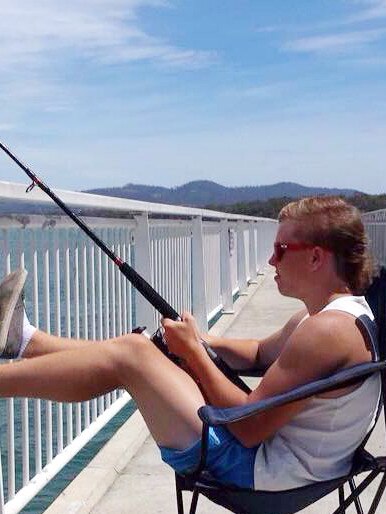
Churchill then restrained the silver gull by the neck and asked a friend to wrap fishing line around its leg, allowing the bird to attempt to fly away before it fell into the water.
Part of the incident was filmed and the footage was distributed via social media app Snapchat and was played to the court where the four people involved could be hard laughing.
The court heard the gull had been “tortured, abused and terrified” and a veterinary consultant found after watching the footage the bird would have likely suffered long-term health problems and possibly death.
Churchill was convicted and the sentence of six weeks’ imprisonment was suspended on the condition he be of good behaviour for two years.
“Concerted, indiscriminate and random attack” on protected species
Joshua Leigh Jeffrey was convicted of aggravated cruelty after bashing nine little penguins to death on a North-West Tasmanian beach.
The 19-year-old had pleaded not guilty, claiming he was not on the beach that night, but he was found guilty of the crime.
The Burnie Magistrates’ Court was told in 2017 that Jeffrey had hit the penguins with sticks while drinking on the beach at Sulphur Creek, near Burnie, on New Year’s Day in 2016.

The bodies of nine little penguins were found at the beach the next day, with the birds having fractures to the head associated with blunt trauma.
The prosecutor called it a “concerted, indiscriminate and random attack” on a protected species.
The court heard Jeffrey had significant cognitive difficulties, he was addicted to drugs and had been diagnosed with a mental health disorder.
He was initially sentenced to 49 hours of community service, but it was doubled on appeal with a prison sentence of two months also imposed, wholly suspended.
Claims of students’ torture of wallaby
Four students from a prestigious Hobart school avoided criminal charges after a claim they tortured and killed a wallaby at Lake Barrington.
The Mercury was told the Friends’ School students were camping in early 2020 when they trapped the wallaby in water until it drowned, then retrieved the deceased animal from the water and smashed its head on rocks.
The school confirmed it was made aware of the animal cruelty allegations in August 2020.
The school then notified Tasmania Police and that the boys were dealt with internally by engaging a juvenile offending “restorative justice” provider.
Police said available evidence did not support charges being laid.



